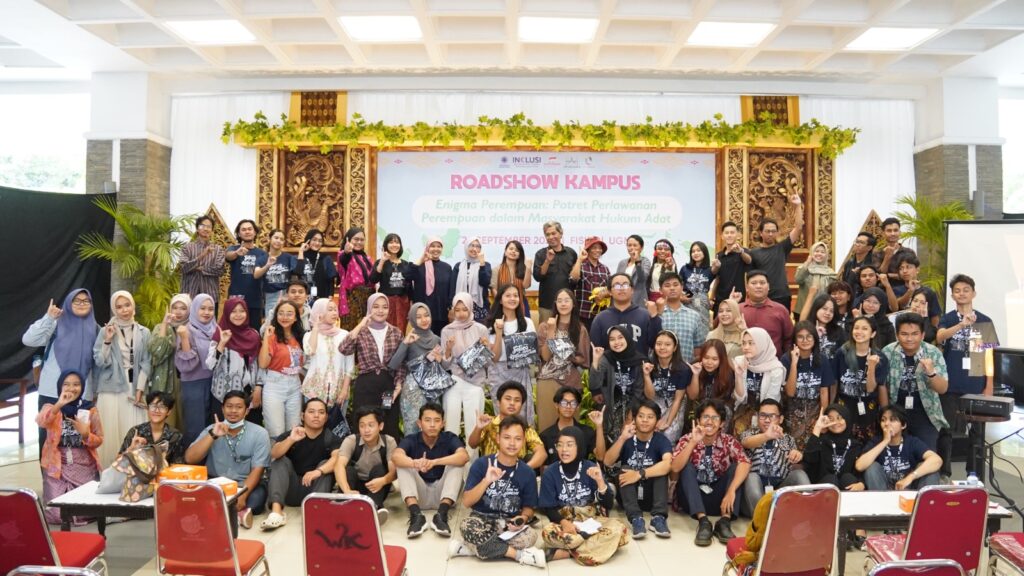Indigenous women, as an inseparable part of indigenous communities, play a truly important role in the lives of indigenous communities. They are not just ordinary members, but they are knowledge keepers and managers of Natural Resources (SDA). It is the main basis for the livelihood of this community. In a larger circle, indigenous women even influence outside the indigenous community itself. They are responsible for passing on cultural values and local wisdom, practicing economic resilience, and having an irreplaceable social role.
However, despite this important role, indigenous women still face various obstacles and obstacles that require in-depth attention and change. The patriarchal culture that is still strong in several indigenous communities makes indigenous women vulnerable to stigma and discrimination. They also often have minimal involvement in public processes, both in indigenous communities and in society at large. This situation is increasingly exacerbated by ongoing conflicts related to natural resources that many indigenous communities in Indonesia experience. This in turn causes poverty and the emergence of many social problems.
Data obtained from KEMITRAAN together with program partner ESTUNGKARA shows that 9% traditional women who are also heads of families are people with disabilities. This condition makes their participation in work and development increasingly limited. Apart from that, in the context of development planning, the involvement of indigenous women is still minimal. It was not even recognized, partly because it was deemed not to have the capacity.
KEMITRAAN, through the Estungkara program, took the initiative to overcome this problem by holding activities roadshow at three universities, namely, University of Indonesia (UI), Gadjah Mada University (UGM) and Pahrayangan University (Unpar). This activity is a forum for learning and discussion between students. Discusses the situation and conditions of indigenous women in various indigenous communities in Indonesia. This is an important step to disseminate information regarding social inclusion issues. Building good relationships with the media, and providing education to students.
In this activity, there were speakers who were trying to ensure that indigenous women in Indonesia were recognized as an inseparable unit. In Estungkara roadshow to campus at the University of Indonesia, there were Dewi Yunita from Pundi Sumatra, Juliana from the Young People of the Anak Dalam Tribe Community, and Deliana Winki as the Founder of the Arus Kualan Traditional School. Meanwhile at Gadjah Mada University, there were Syaiful from the Karsa Institute, Hasna Sasongko from the Kulawi Indigenous Women, Samsul Maarif, Lecturer in Anthropology and CRCS UGM and Michelin Sallata, chairman of the Indonesian Indigenous Youth Front (BPAN). Finally, at Pahrayangan University, there were Itoh from the Baduy Community, Yeyen Komar from the Indonesian Love Blessings Community, Fauzan Adima from Young Indonesian Foresters, Catharina Dewi Wulansari, Professor at the UNPAR Faculty of Law, Florentini Deliana Winki from Young Dayak Leader and Elisabeth AS Dewi, Chair UNPAR International Relations major.
Estungkara roadshow to campus This also aims to provide a forum for discussion and education for students. So that knowledge related to social inclusion, especially indigenous communities, indigenous women, the environment, children and disabilities, can increase. Not only that, it encourages students to be actively involved in critical discussions and campaign activities related to social inclusion.
From this activity, it is hoped that it can increase students' awareness and understanding of issues that arise in indigenous communities, especially indigenous women. Also, encouraging active student participation through discussions, social media campaigns, and popular writing related to indigenous women.


